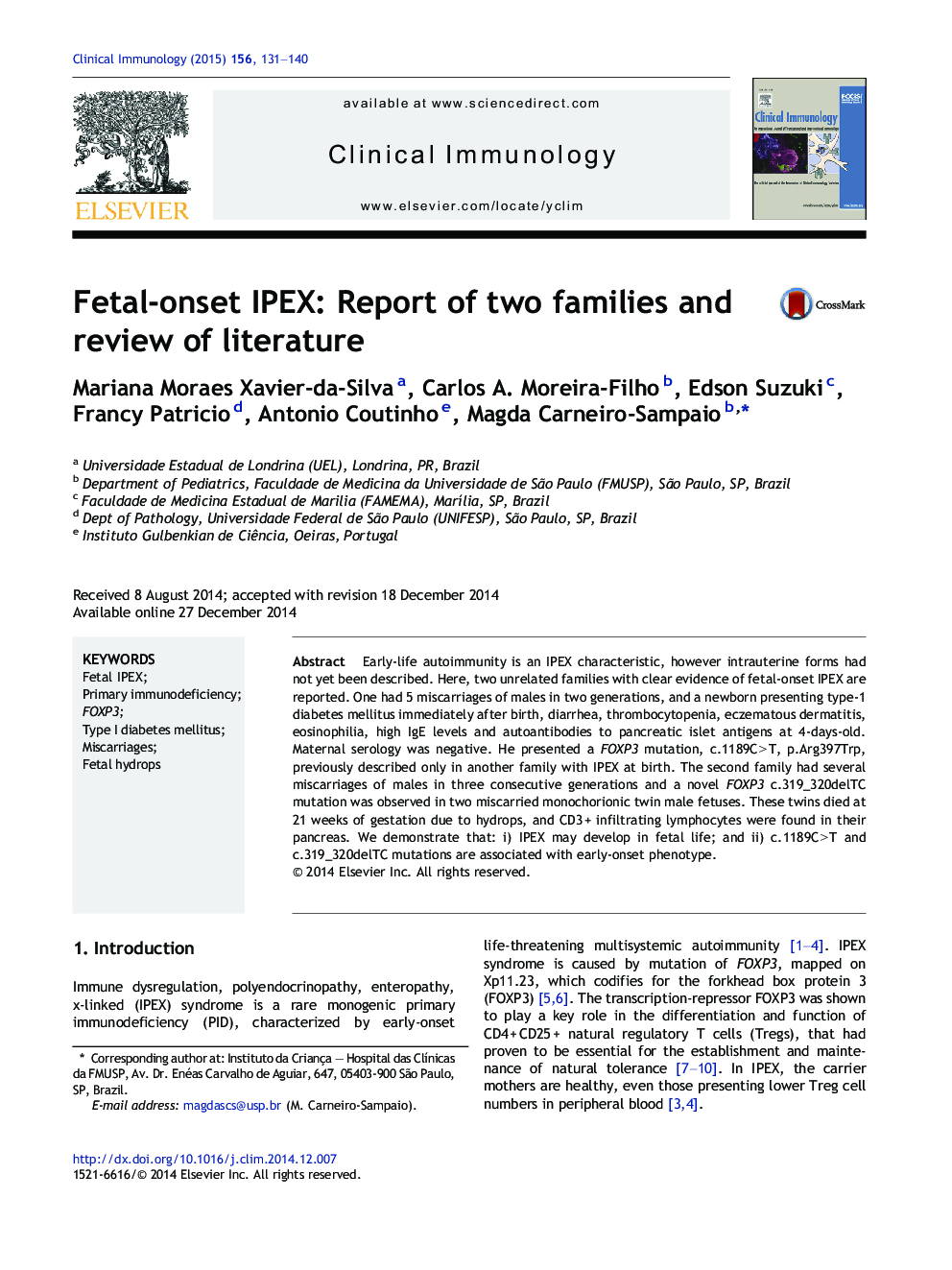| Article ID | Journal | Published Year | Pages | File Type |
|---|---|---|---|---|
| 6087385 | Clinical Immunology | 2015 | 10 Pages |
â¢IPEX clinical features may manifest already in fetal life.â¢Premature labor and intrauterine growth restriction occur commonly in fetal IPEX.â¢IPEX may cause miscarriage, sometimes due to hydrops.â¢The mutations c.1189C > T and c.319_320delTC are associated with severe IPEX phenotype.
Early-life autoimmunity is an IPEX characteristic, however intrauterine forms had not yet been described. Here, two unrelated families with clear evidence of fetal-onset IPEX are reported. One had 5 miscarriages of males in two generations, and a newborn presenting type-1 diabetes mellitus immediately after birth, diarrhea, thrombocytopenia, eczematous dermatitis, eosinophilia, high IgE levels and autoantibodies to pancreatic islet antigens at 4-days-old. Maternal serology was negative. He presented a FOXP3 mutation, c.1189CÂ >Â T, p.Arg397Trp, previously described only in another family with IPEX at birth. The second family had several miscarriages of males in three consecutive generations and a novel FOXP3 c.319_320delTC mutation was observed in two miscarried monochorionic twin male fetuses. These twins died at 21Â weeks of gestation due to hydrops, and CD3Â + infiltrating lymphocytes were found in their pancreas. We demonstrate that: i) IPEX may develop in fetal life; and ii) c.1189CÂ >Â T and c.319_320delTC mutations are associated with early-onset phenotype.
